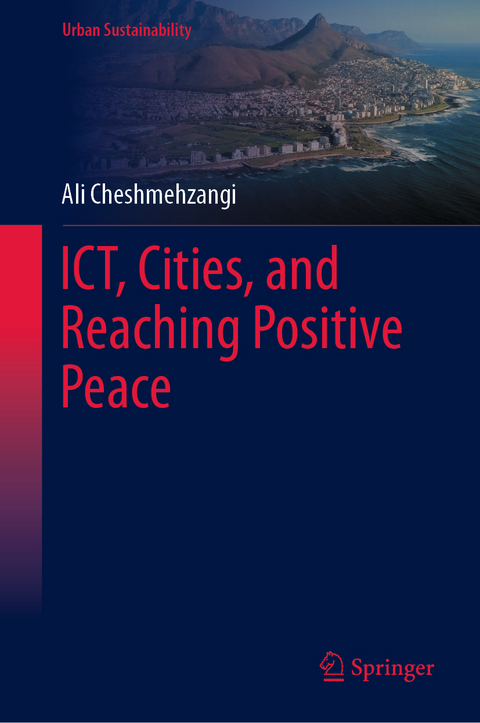
ICT, Cities, and Reaching Positive Peace
Springer Verlag, Singapore
978-981-19-3166-6 (ISBN)
Ali Cheshmehzangi is a Full Professor of Architecture and Urban Design with a Ph.D. Degree in Architecture and Urban Design, a Masters Degree in Urban Design, a Graduate Certificate in Professional Studies in Architecture, and a Bachelor Degree in Architecture. He is an urbanist and urban designer by profession and by heart. He studies cities and city transitions, sustainable urbanism, and integrated urban design strategies. Ali is Head of the Department of Architecture and Built Environment, Director of the Centre for Sustainable Energy Technologies (CSET), and Director of Urban Innovation Lab at the University of Nottingham Ningbo China. He is also a Specially-Appointed Professor at Hiroshima University, Japan. More recently, he works on two research projects on Integrated Urban Modelling Framework, and ICT-based smart technologies for resilient cities. Some of his previous projects are: smart eco-cities in China and Europe, low-carbon town planning in China, green infrastructure ofcities, nature-based solutions in China, toolkit for resilient cities, sponge city program and green development in China, low carbon and climate-resilient planning, and other urban transition studies. So far, Ali has +135 published journal papers and nine other published books, titled 'Designing Cooler Cities' (2017), the award-winning 'Eco-development in China' (2018), 'Sustainable Urban Development in the Age of Climate Change' (2019), 'Identity of Cities and City of Identities' (2020), the double award-winning 'The City in Need' (2020), 'Urban Memory in City Transitions' (2021), 'China's Sustainability Transitions' (2021), 'Sustainable Urbanism in China' (2021), 'Urban Health, Sustainability, and Peace in the Day the World Stopped' (2021), and 'Green Infrastructure in Chinese Cities' (2022).
Chapter 1: Introduction to ICT and Smart technologies in Cities.- Chapter 2: The role of ICT and Smartness for Peace-building Processes (with Narrative of 8 positive peace pillars/dimensions).- Chapter 3: ICT for well-functioning government in cities.- Chapter 4: ICT for equitable distribution of resources in cities.- Chapter 5: ICT for free flow of information in cities.- Chapter 6: ICT for good relations with neighbours in cities.- Chapter 7: ICT and high levels of human capitals in cities.- Chapter 8: ICT and acceptance of the rights of others in cities.- Chapter 9: ICT and low levels of corruption in cities.- Chapter 10: ICT and sound business environment in cities.- Chapter 11: Learning from practices and the use of ICT for positive peace.- Chapter 12: Augmented Plans: Future Directions and Potential Pathways.
| Erscheinungsdatum | 21.07.2022 |
|---|---|
| Reihe/Serie | Urban Sustainability |
| Zusatzinfo | 44 Illustrations, color; 1 Illustrations, black and white; XXIV, 243 p. 45 illus., 44 illus. in color. |
| Verlagsort | Singapore |
| Sprache | englisch |
| Maße | 155 x 235 mm |
| Themenwelt | Mathematik / Informatik ► Informatik ► Theorie / Studium |
| Naturwissenschaften ► Biologie ► Ökologie / Naturschutz | |
| Naturwissenschaften ► Geowissenschaften ► Geografie / Kartografie | |
| Sozialwissenschaften ► Politik / Verwaltung ► Staat / Verwaltung | |
| ISBN-10 | 981-19-3166-6 / 9811931666 |
| ISBN-13 | 978-981-19-3166-6 / 9789811931666 |
| Zustand | Neuware |
| Haben Sie eine Frage zum Produkt? |
aus dem Bereich


